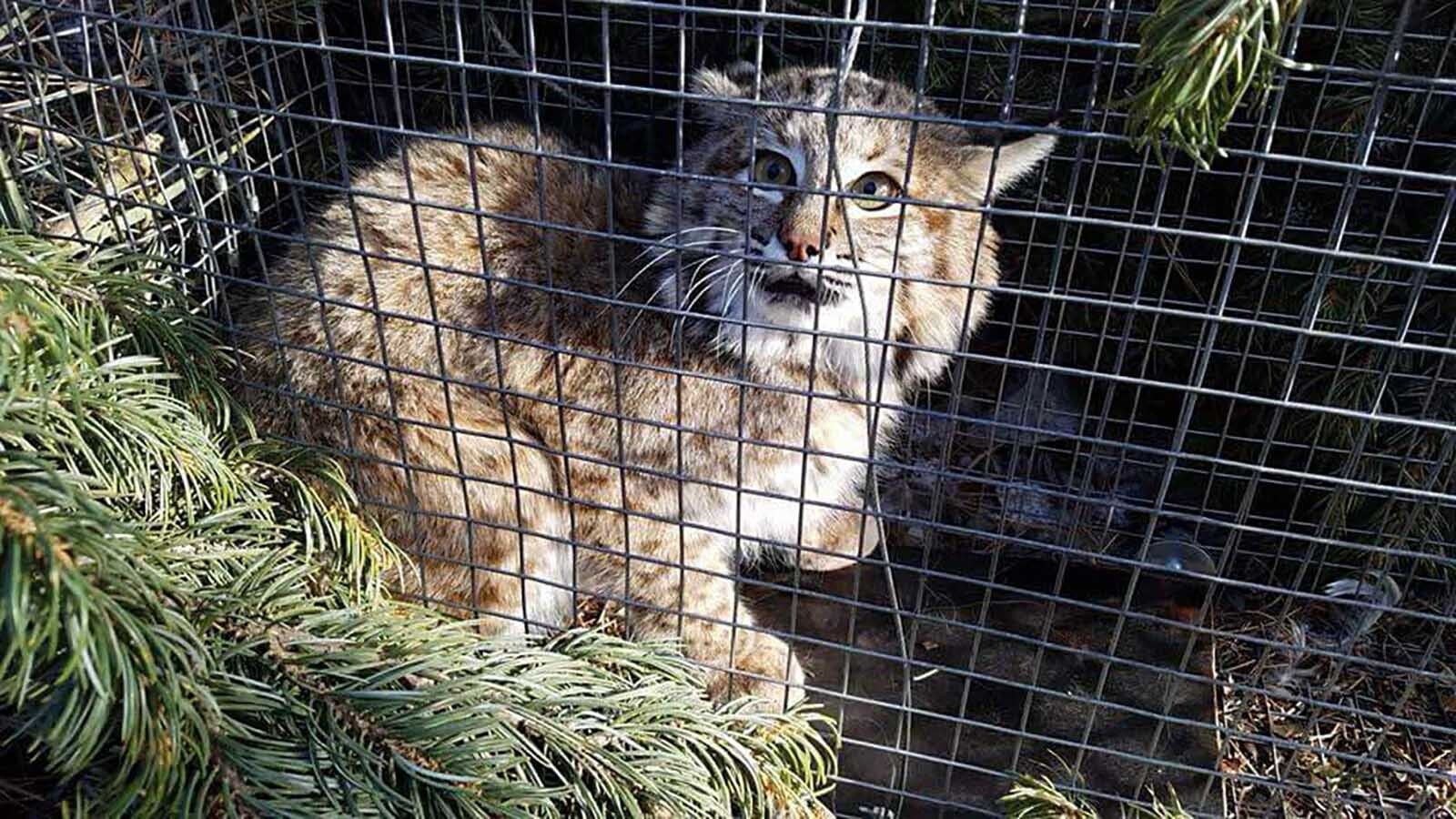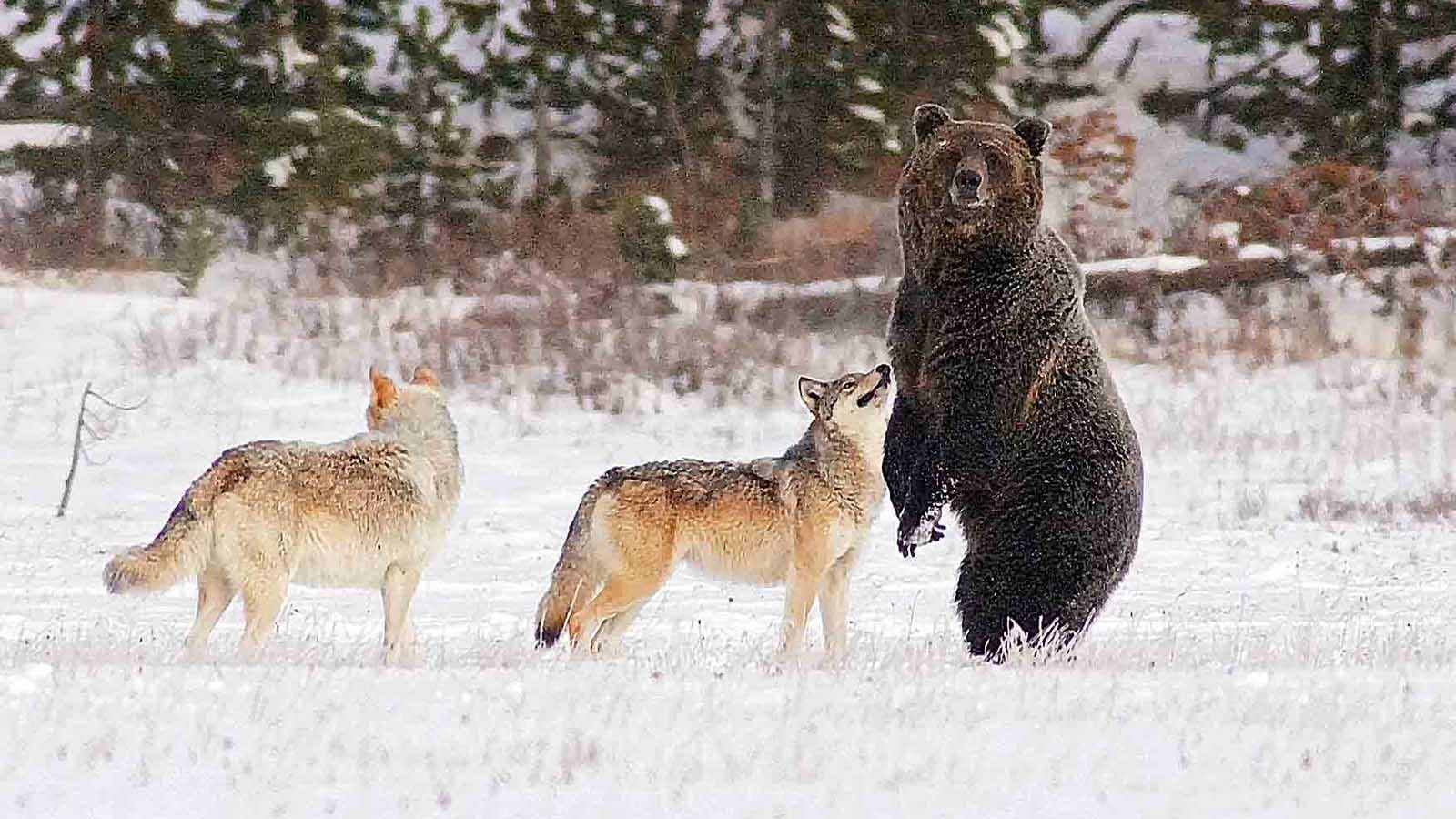By Mark Heinz , Public lands and wildlife reporter
Mark@cowboystatedaily.com
Alleged bad wolf management by Montana and Idaho could shut down wolf hunts in those states and Wyoming, if a complaint filed Tuesday in U.S. District Court by environmental and animal welfare groups succeeds.
“Wolves in the northern Rocky Mountains are not currently protected under the ESA” (Endangered Species Act), says a complaint filed in Missoula, Mont. Division of U.S. District Court, and more aggressive hunting and trapping methods that have been proposed in Montana and Idaho could threaten the animals’ continued recovery in the region.”
The complaint requests that ESA protection be restored, which would effectively halt state-managed wolf hunting and trapping in those states, as well as Wyoming. It was filed by the Center for Biological Diversity, the Humane Society of the United States, Humane Society Legislative Fund and the Sierra Club. The defendants are named as the U.S. Department of Interior and Interior Secretary Deb Haaland, the U.S. Fish and Wildlife Service and its director Martha Williams.
Wolf management has been a cantankerous topic in the Greater Yellowstone region for the nearly 30 years since the apex predators were reintroduced into the area in the mid-1990s. And pitched debates over the topic date even further back – to when reintroduction began to be seriously considered in the late 1980s.
Proponents of wolves have argued that the predators bring vital balance and restoration to ecosystems. Wolves not only cull the numbers of large ungulates such as elk, but they also keep their prey moving, instead of congregating in and trampling vulnerable areas such as willow stands and delicate streamside riparian habitat, advocates claim.
Opponents have claimed that reintroducing wolves has threatened ranchers’ livelihood and taken too great a toll on big game herds, thereby ruining hunting opportunities in many areas. Wolf opponents also claim that packs have severely set back other vital species, such as moose.
By the mid-2000s, it seemed that both sides had settled into a sort of grudging acceptance. The anti-wolf side had accepted that the predators weren’t going away. Meanwhile, wolf advocates had to accept that eventual management by the states – which had been built into the reintroduction plan from the start – would mean that hunters would be allowed to kill some wolves.
Still, lawsuits have occasionally cropped up, requesting that ESA protection be restored for wolves, as some continue to claim that the state wolf management programs lean too aggressively toward elimination, rather than conservation.
The new complaint claims that a finding by the U.S. Fish and Wildlife Service, previously requested by the plaintiffs, did in fact find a credible case for relisting the wolves. That finding was issued on Sept. 17, 2021. The deadline for FWS to determine whether relisting was warranted passed on June 1, according to the complaint.
The complaint seeks a court order declaring that the defendants violated the ESA by failing to meet the deadline.





